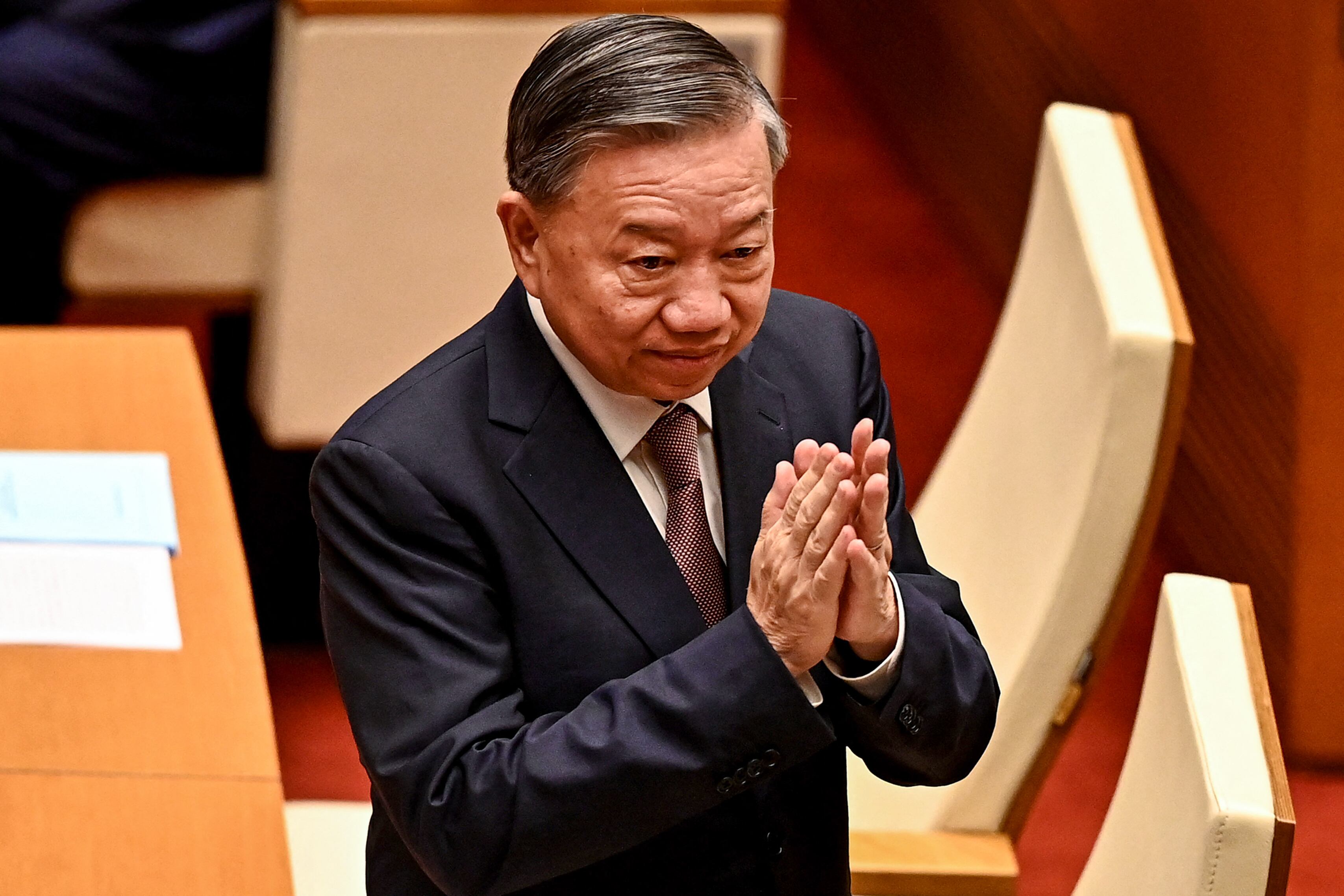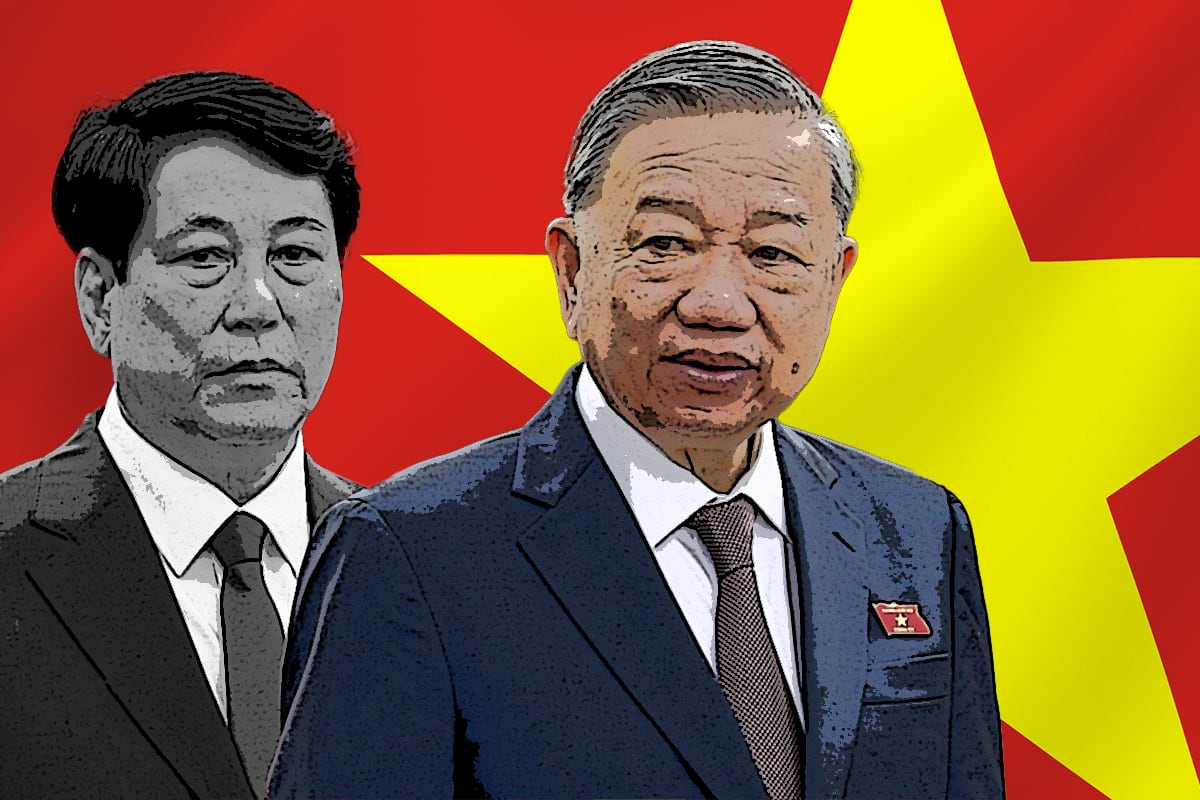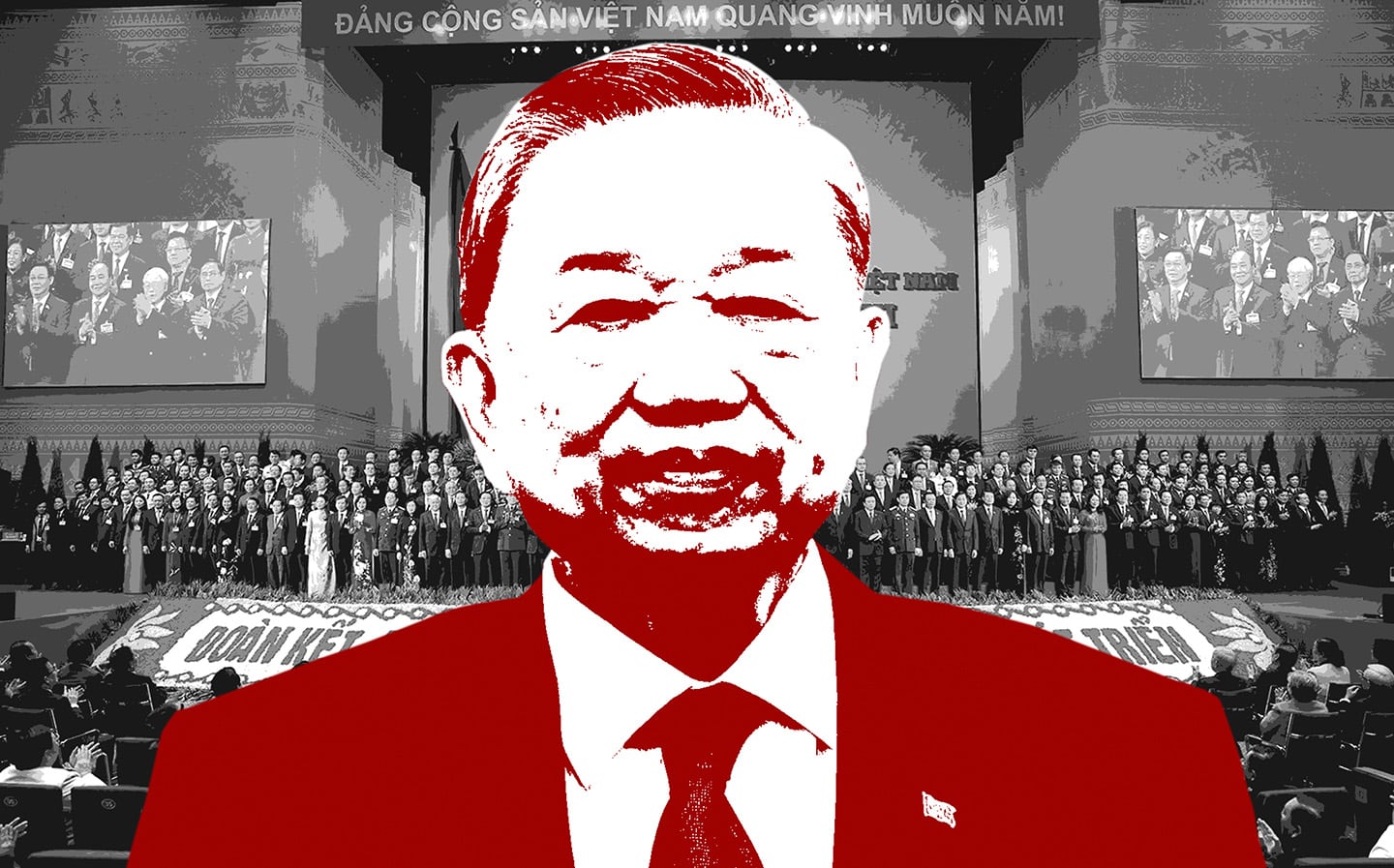In a rare encounter, a Vietnamese Politburo member met to engage in dialogue with a dozen intellectuals and artists, including several well-known dissidents who are critical of the ruling Communist Party, attendees told Radio Free Asia.
Sunday’s meeting in Saigon, which had been in the works for several months, had been proactively sought by Ho Chi Minh City Party Secretary Nguyen Van Nen, said poet Hoang Thuy Hung, one of the attendees.
Vietnam’s 16-member Political Bureau, or Politburo, is the highest body of the Communist Party of Vietnam, and is the dominant power in the one-party country.
“A few months ago, Mr. Nen started asking to invite some intellectuals whose opinions they had not heard from, including some who were known to be critical,” said Hung, a member of Van Viet, an independent civil society organization suppressed by the state.
The meeting was arranged by the Oriental Development Research Institute, which may be a branch of the state security agency, Hung said.
Writer Luu Trong Van confirmed that he also attended the gathering on his Facebook page.
Such meetings are exceedingly rare. According to the Hung, the last time the Communist Party agreed to dialogue with independent intellectuals was right after the Doi Moi reforms of 1986. But these reforms quickly ended, and the party returned to a policy of suspicion and suppression of dissenting voices.
The development signals that General Secretary To Lam, who became the Vietnam’s leader last May, may be more open to criticism and dissent, Hung said -- although it was still too early to know if this was a permanent shift.
“After To Lam. came to power, I saw that there seemed to be a reversal -- that is, a desire to listen to dissenting voices,” he said.
Since taking office, Mr. To Lam has also moved toward abandoning the reliance on state-owned enterprises and putting the private sector at the center of the economy.
Critical feedback
Among those invited to attend were intellectuals who were once Communist Party members but later left the ranks and became rare voices of dissent against state policies.
They included Prof. Mac Van Trang, who withdrew from the party in 2018 to protest the decision to expel Prof. Chu Hao from the party, artist Kim Chi, who also withdrew from the party in 2018, and poet Do Trung Quan, a famous dissenting voice on social media.
Hung said that Nguyen, the Politburo member, asked intellectuals to give their opinions on two issues, including how to attract talent to Ho Chi Minh City, and implementing more freedom at universities.
In response, Hung said he directly criticized the state’s policies, especially the way it treated dissent.
“The policy towards intellectuals and artists is not good, especially the policy toward those who criticize the state out of their patriotism, it does not create trust. I need to emphasize that INTELLECTUALS MUST BE INDEPENDENT in order to contribute to the country!” he wrote on his Facebook page afterwards, in a summary of what he said at the meeting.
Still, Hung also said that it is still too early to conclude whether this is a permanent change in policy.
“We should not rush to conclude whether it has achieved anything commendable,” Hung said. “Because these are still only initial signs. But in any case, this shows the prospect that the new leader of the Communist Party will have a new way of assessing and handling the country’s problems correctly,” he concluded.
The above reservations are well-founded. While Nguyen had contacted several independent intellectuals and expressed goodwill, the state simultaneously showed hostility towards other famous critics, including Nguyen Quang A and poet Thai Ba Tan.
On March 26, Thai Ba Tan said on his personal Facebook page that he “might be arrested” after police visited his home for questioning. and Nguyen Quang A was named and shamed as a “hostile force” in a March 27 news report on the People’s Police Television channel.
Edited by Malcolm Foster.



